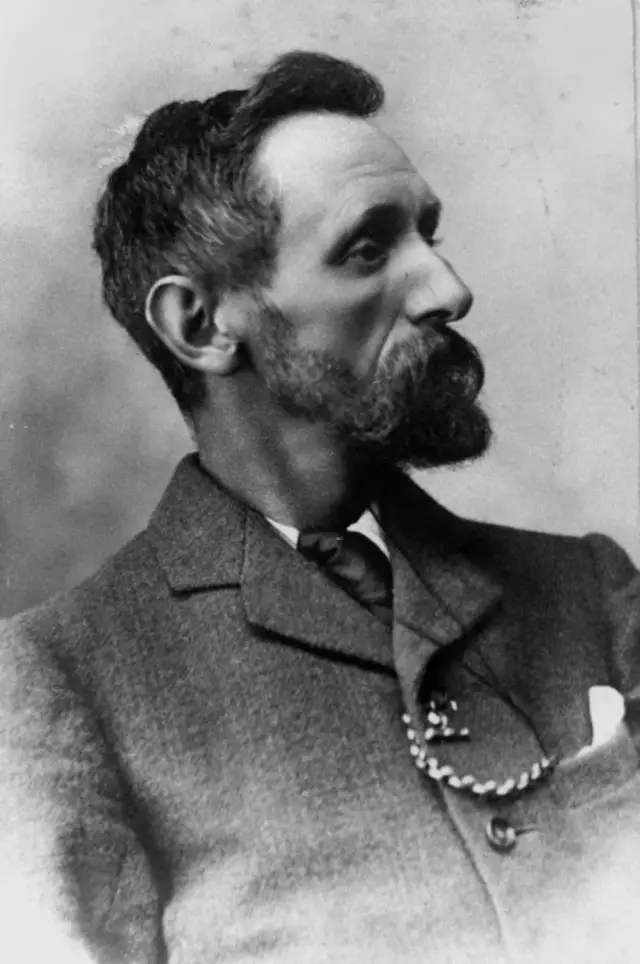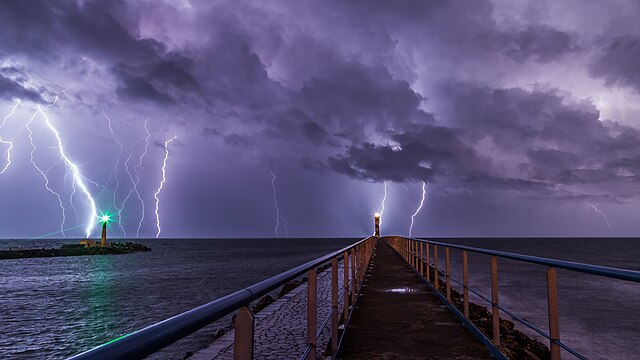Imagine being at the mercy of a dangerous storm, watching as winds howl and the skies darken. You brace for impact, but what really gets you is the name of the storm. It’s not just any random name. No, it’s a name you recognize. Maybe it’s a politician you can’t stand. Maybe it’s the one person you’d never want to be associated with. And now, that person is forever tied to nature’s fury.
That’s exactly what one meteorologist did. He took it upon himself to name cyclones after politicians, and the internet, of course, went wild.
Let’s dive into the wild, windy tale of how a weather expert used political figures as names for some of the world’s most destructive storms.
The Unlikely Storm-Chaser: Who Was This Meteorologist?
Before we dive into the controversy, let’s talk about the man behind the storm-naming madness: Clement Wragge. An Australian meteorologist with a penchant for drama, Wragge was no stranger to making waves. He wasn’t content with simply predicting weather patterns and monitoring cloud formations. Oh no. He needed to make a statement, a big one.
In the late 19th century, Wragge began naming cyclones in the Pacific Ocean. It wasn’t entirely uncommon at the time to name storms, but Wragge took it further. Way further. While most meteorologists stuck to simple, neutral names (often related to places or numbers), Wragge thought it would be far more entertaining to name them after public figures.
And who better than politicians?

Cyclones Meet Politicians: The Drama Unfolds
In the 1880s, Australia was a different place, full of political turbulence. Wragge, ever the provocateur, decided to name one particularly nasty cyclone after the Australian Prime Minister of the time, Sir Henry Parkes. Why? Well, according to Wragge, it was because Parkes had “weathered a storm of his own” in politics, and Wragge thought it would be fitting to name a literal storm after him.
It didn’t stop there. Over the years, Wragge named cyclones after several prominent politicians, including both Australian and foreign figures. Sometimes, he chose a politician he disliked just to send a message. Talk about a personal vendetta! Wragge’s reason? “If politicians can be stormy in their nature, why not name storms after them?”
Why It Was Controversial: Storms, Politics, and Personal Vendettas
To put it mildly, this did not sit well with everyone. Imagine if a natural disaster was named after your least favorite politician. It feels… personal, right? Wragge’s habit of naming cyclones after politicians, especially those he had a bone to pick with, led to a series of heated reactions from the public.
The name-calling extended beyond the storm itself. People didn’t just fear the cyclones; they started to dread the idea of having their favorite political figure’s name tied to the force of nature. After all, how could it not be a bad omen when a storm shared the same name as someone you thought was incompetent or corrupt?
And the media, naturally, ate it up. It wasn’t just the cyclones that were storming through the headlines; Wragge’s audacious naming was getting as much attention as the weather itself.
The Fallout: Was It Genius or Just Petty?
To some, Wragge was a genius, an eccentric character who wasn’t afraid to add a little flair to an otherwise dreary scientific world. But to others, he was crossing a line. Was naming cyclones after politicians a clever commentary on the often destructive nature of politics, or was it simply an unprofessional act of pettiness?
As the storms intensified, so did the controversy. One cyclone, which Wragge named after a particularly unpopular politician, was said to have left behind massive devastation. Some even joked (half-jokingly, half-seriously) that the politician might have actually summoned the storm through their bad decisions.
Was it fate? Or was it just the world’s way of reinforcing the connection between destructive forces, both natural and political?
The Lasting Impact: Does Anyone Still Do It?
Wragge’s unique approach to storm-naming didn’t last forever. Over time, the meteorological community evolved, and naming cyclones after politicians became a thing of the past. Today, the naming of storms tends to follow a more neutral, systematic approach, often based on gender-neutral lists of names, some of which are even decided years in advance.
Yet, as much as we may have moved on from the practice of associating storms with politicians, Wragge’s legacy still looms large. His audacious naming conventions forced people to think about the connection between natural disasters and human behavior. It was as if he was forcing us to confront the stormy nature of politics, whether we liked it or not.
What Does It All Mean?
In the end, Clement Wragge’s storm-naming saga might seem trivial. A bit of a quirk, even. But it actually says a lot about human nature. Think about it: Why do we get so worked up when a storm shares a name with a politician we dislike? Maybe it’s because we’re wired to see patterns and connections, even when they don’t exist. We want to make sense of things, even things as unpredictable as a cyclone. And when we can tie that storm to something as familiar as a politician, well, it makes it feel more real.
Wragge’s stormy antics remind us that even in the scientific world, personality matters. He didn’t just want to predict the weather; he wanted to make people care about it. And for a time, he succeeded. People didn’t just watch storms anymore; they watched who they were named after and whether or not those names would spark some drama.
So next time a storm hits, and you hear the name on the news, don’t just wonder about its power. Wonder about the story behind the name. Because somewhere out there, a meteorologist, maybe not Wragge himself, but someone like him, has created a storm of their own.
Sources:
1. Australian National Maritime Museum: The Story of Clement WraggeSources: Australian National Maritime Museum: The Story of Clement Wragge The Conversation: Politicians and Their Connection to Cyclones ABC Australia: A Brief History of Cyclone Naming
2. The Conversation: Politicians and Their Connection to Cyclones https://theconversation.com/global
3. ABC Australia: A Brief History of Cyclone Naming

